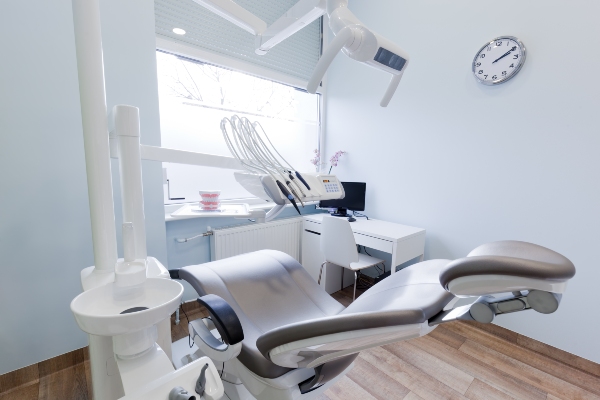 Dentures are a great solution for people who have lost some or all of their teeth. They can restore one's ability to eat and speak properly and improve the overall appearance of your smile. However, you may have questions about the denture process, from the initial consultation to the final fitting. This blog article will answer five of the most common questions about the denture process and what you can expect after the procedure.
Dentures are a great solution for people who have lost some or all of their teeth. They can restore one's ability to eat and speak properly and improve the overall appearance of your smile. However, you may have questions about the denture process, from the initial consultation to the final fitting. This blog article will answer five of the most common questions about the denture process and what you can expect after the procedure.
1. What is the first step in getting dentures?
The first step is to consult an experienced dentist or other dental professional specializing in denture care and placement. During this appointment, the dentist will examine the patient's mouth and teeth, take measurements, and discuss the different options for dentures.
2. What are the different types of dentures?
The type of denture a patient receives depends on their needs and preferences. There are several types of dentures available, including:
- Full dentures: Full dentures, or complete dentures, are designed to replace all of an individual's natural teeth in the upper or lower jaw. They consist of a gum-colored acrylic base that supports the replacement teeth and is held in place by suction or dental adhesives.
- Partial dentures: Partial dentures are a common solution when only some of one's natural teeth are missing. They consist of a metal or acrylic framework that supports the replacement teeth and is attached to the remaining teeth with metal or plastic clasps.
- Implant-supported dentures: Implant-supported dentures are held in place by dental implants that a dentist surgically places in the patient's jawbone. This type of denture provides a more stable and secure fit than traditional dentures and can replace one or both arches of teeth.
3. How long does it take to get dentures?
The amount of time it takes to get dentures depends on several factors, such as the type of dentures the patient needs and how many appointments are required. However, completing the denture process can take a few weeks to several months. For example, implant-supported dentures take longer because the implant post has to fuse with the patient's jawbone.
4. Do dentures affect the ability to eat and speak?
It may take some time to adjust to wearing dentures. However, with practice, an individual should be able to eat and speak normally. Their dentist may recommend starting with soft foods and gradually introducing more challenging foods as the individual becomes more comfortable with their dentures.
5. How do I care for my new dentures?
Patients should clean their dentures daily with a soft-bristled brush and a denture-specific cleaner. They should also rinse their dentures after eating and before putting them back in their mouth. It is important to handle one's dentures carefully to avoid damage and to store them in water or a denture-soaking solution when not in use, such as when the patient is sleeping.
Restore your smile with dentures
If you have any additional questions or concerns about the denture process, schedule a consultation with one of our dentists today. Our team can provide more information about the process and design a specialized treatment plan that fits your needs. Restore your smile and call our office today.
Request an appointment or call Gledhill Dental at 509-800-8410 for an appointment in our Kennewick office.
Related Posts
Regular check-up visits are ideal for denture wearers to protect their smile and help ensure a comfortable fit for their dentures at all times. In this review, we discuss why it is imperative for patients with dentures to visit their dentist regularly.There are many things that a patient can do at home to protect their…
Receiving dentures is a straightforward process, but it is determined by the type of dentures you receive. There are three types of dentures we will consider for your case, and in doing so, we will walk you through the process in depth at the time of your appointment. This article strives to provide you with…
Dentures can replace teeth right away. It is a common solution to tooth loss. Because of many innovations in dentistry, you can now have many types of dentures to choose from. Knowing the right ones for your needs can help you decide which one will suit you the most. Here are the different types of…


